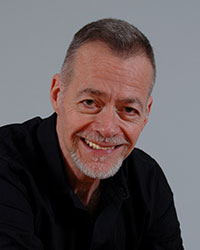 Dr. David Fawcett
Dr. David Fawcett
Many sex, porn, and paired substance/sex addicts, when they enter treatment with us at Seeking Integrity, tell us that they were not in any way abused or traumatized as children. When we start working with them, however, we find that they were. Often, the abuse they suffered was not overt, like beatings, constant criticism, or sexual contact. Instead, they suffered ‘quiet’ trauma, especially various forms of neglect.
Typically, these individuals think they were not traumatized because nothing overtly bad happened. When asked about their childhood, they often say they had loving parents. At most, they’ll say that one or both parents was not around much or was emotionally unavailable.
What these individuals don’t understand is that neglect is a form of abuse, and it is just as traumatizing as every other form of abuse. According to Enod Gray in her book, Neglect: The Silent Abuser, neglect manifests in a variety of ways. The most common forms are as follows:
- Lack of Adequate Food, Shelter, Clothing
- Emotional/Psychological Abandonment
- Being a Low Priority
- Not Feeling Heard
- Not Being Allowed to Have or Express Emotions
- Being Used as a Surrogate Spouse
- Being Forced into the Role of a Surrogate Parent
- Being Overly Controlled
Generally, people who were neglected but not overtly abused as children will, as adults, feel miserable but wonder why. These individuals will struggle with addictions, relationship woes, depression, anxiety, and numerous other issues and decide it’s more about them than what happened to them because, in their minds, nothing bad occurred to make them this way. But neglect, the absence of needed support, is just as traumatizing in both the short-term and long-term as more overt forms of abuse.
For more information about neglect, including ways to identify and overcome it, we highly recommend Enod Gray’s book, Neglect: The Silent Abuser. We also recommend Dr. Rob Weiss’s podcast with Enod Gray.
* * * * *
If you are wondering about and hoping to heal the issues that underlie and drive your addiction, we offer several online workgroups that may be helpful. First is our Healing Attachment Wounds workgroup, which begins April 24th. You can sign up HERE. Next is our Why Men Struggle to Love workgroup, which begins May 4th. You can sign up HERE.
